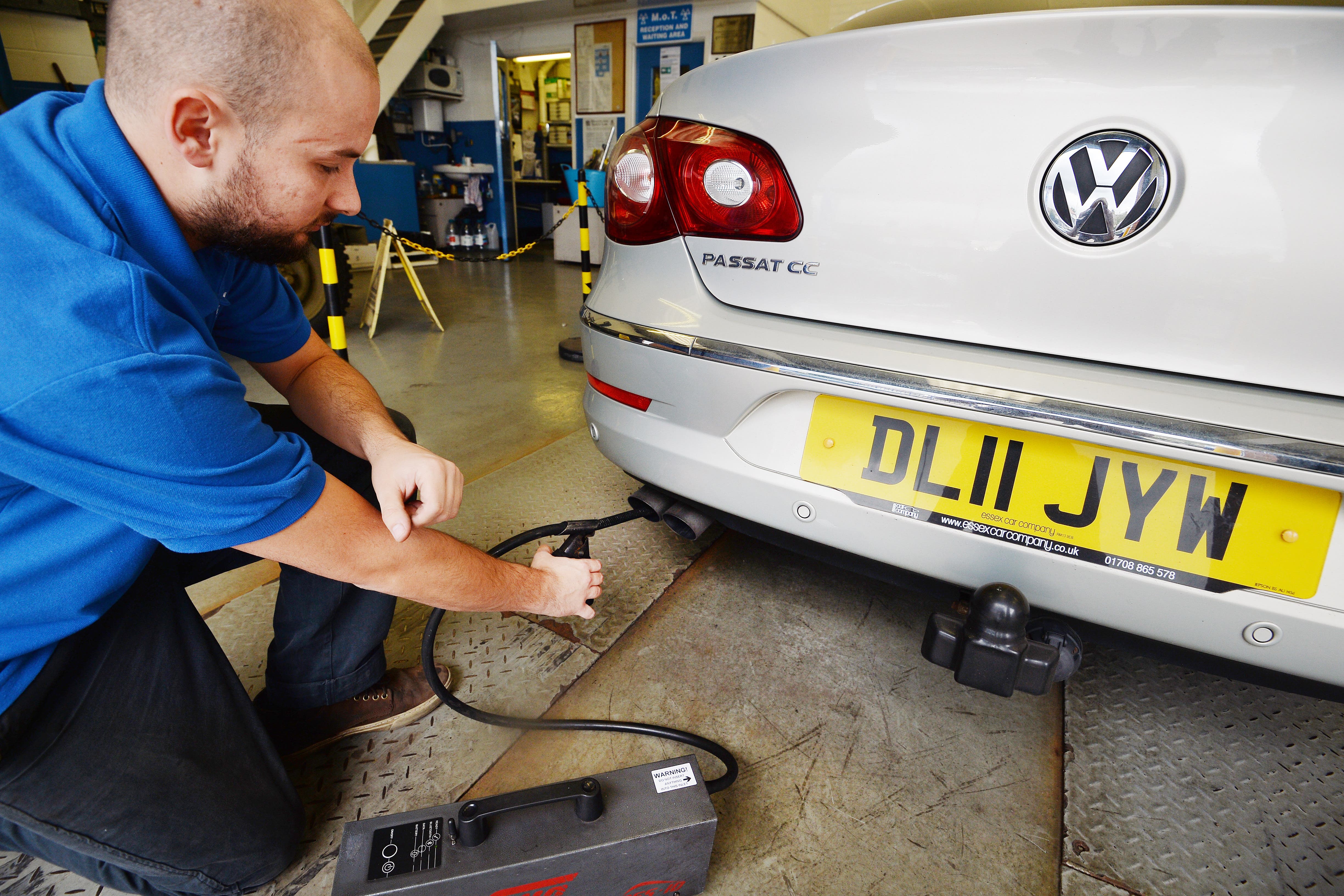MOT rules could be eased to cut costs for drivers
The Government has launched a consultation on proposals to require new light vehicles to have their first MOT four years after they are registered.

Your support helps us to tell the story
From reproductive rights to climate change to Big Tech, The Independent is on the ground when the story is developing. Whether it's investigating the financials of Elon Musk's pro-Trump PAC or producing our latest documentary, 'The A Word', which shines a light on the American women fighting for reproductive rights, we know how important it is to parse out the facts from the messaging.
At such a critical moment in US history, we need reporters on the ground. Your donation allows us to keep sending journalists to speak to both sides of the story.
The Independent is trusted by Americans across the entire political spectrum. And unlike many other quality news outlets, we choose not to lock Americans out of our reporting and analysis with paywalls. We believe quality journalism should be available to everyone, paid for by those who can afford it.
Your support makes all the difference.Owners of new cars, motorbikes and vans could be permitted to delay their vehicle’s first MOT by a year under Government plans to cut costs for drivers.
The Department for Transport said it has launched a consultation on proposals to require light vehicles in Britain to have their first MOT four years after they are registered, compared with three years currently.
Views on the frequency of MOTs – which under existing regulations are every 12 months after the first test – are also being sought.
We strongly discourage the Government from extending a car's first MOT
The DfT said it wants to “ensure roadworthiness checks continue to balance costs on motorists while ensuring road safety, keeping up with advances in vehicle technology, and tackling vehicle emissions”.
Drivers can be fined up to £1,000 for using a vehicle without a valid MOT.
The tests check a number of parts such as lights, seatbelts, tyres and brakes to ensure they meet legal standards.
The DfT said MOTs cost an average of £40 and delaying the first test for new vehicles could save motorists around £100 million a year.
It said “major developments in vehicle technology” have increased road safety since MOTs were introduced in 1960, such as lane-assisted driving.
Conducting the first roadworthiness tests for new vehicles after four years is “already standard practice” across many European countries including Belgium, Denmark, France, Italy, Spain and Portugal, the DfT said.
It said the number of casualties in crashes caused by vehicle defects is “low” and Government analysis shows delaying the first MOT “should not impact road safety”.
DfT figures show 26 people were killed in crashes on Britain’s roads in 2021 when vehicle defects were a contributory factor.
AA president Edmund King said: “The MOT plays a vital role in ensuring that vehicles on our roads are safe and well maintained, and while not a formal recommendation, we totally oppose any change from an annual MOT.
“Last year, 83% of drivers said that the annual MOT was ‘very important’ for keeping our cars and roads as safe as possible, which highlights why an annual MOT must remain in place.
While we’re not opposed to delaying a new vehicle’s first MOT, we believe there should be a requirement for particularly high mileage vehicles to be tested sooner
“With one in 10 cars failing their first MOT, we strongly discourage the Government from extending a car’s first MOT to the fourth anniversary due to road safety concerns.”
The RAC’s head of roads policy Nicholas Lyes said: “While we’re not opposed to delaying a new vehicle’s first MOT, we believe there should be a requirement for particularly high mileage vehicles to be tested sooner.
“If the Government is looking to improve the MOT, now is the ideal time to take into account how much a vehicle is driven alongside the number of years it’s been on the road.
“We’re also disappointed the Government is still entertaining the idea of increasing the time between MOTs.
“Our research clearly shows drivers don’t agree with this and believe it’s dangerous.”